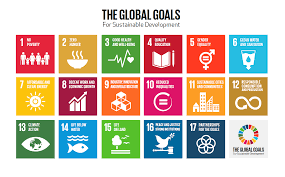Access to justice: a driver for the sustainable development goals

The right to access to justice is a fundamental driver to ensure the achievement of the Sustainable Development Goals (SDG). Why? Because, by guaranteeing access to justice for all, we ensure democratic participation and mechanisms of accountability. Hence, policy makers should pay attention to access to justice.
Access to justice is the vehicle through which other rights are conveyed, as correctly stated by Ricardo Lorenzetti. The global community agreed to consider access to justice as a fundamental right when it was incorporated in the global agenda. Hence, with SDG 16 society agreed to “promote peaceful and inclusive societies for sustainable development, provide access to justice for all and build effective, accountable and inclusive institutions at all levels.”
The right to access to justice, when and if granted, enables people to communicate with the state, to demand the enforcement of their entitlements, and to hold the state accountable. For example, SDG 5 on gender equality can be achieved when women are able to invoke their right to a life free of discrimination and violence. This is possible when women are aware of their entitlements and the mechanisms needed to claim them, and when policy makers design and implement an accessible organizational structure. In this context, the process of legal empowerment becomes a fundamental element to ensure the right to access to justice.
A legal empowerment approach to access to justice contributes to making people active members of society. This approach to access to justice places people in the position of being able to use the law and contributes to their individual development. Through the legal empowerment approach, people increase their rights awareness and their possibilities to request the achievement of the SDG.
The law and legal procedures are tools to claim entitlements and not end goals in themselves. In this context, three elements become determinant, namely that (i) people are given a chance to understand their rights and means to enforce them, (ii) policy makers design a system that provides people with a structure within which they can operationalize their rights, and (iii) policy makers establish a judiciary that is able to provide inclusive means to ensure access to justice for all.
The above is possible when policy makers trust in the capacity of members of society to use the law. This trust, combined with an inclusive approach to access to justice, could trigger democratic participation and mechanisms of accountability for the achievement of the SDG.
Written by Julieta Marotta, deputy academic director, MPP, UNU-MERIT/MGSoG
| More blogs on Law Blogs Maastricht |